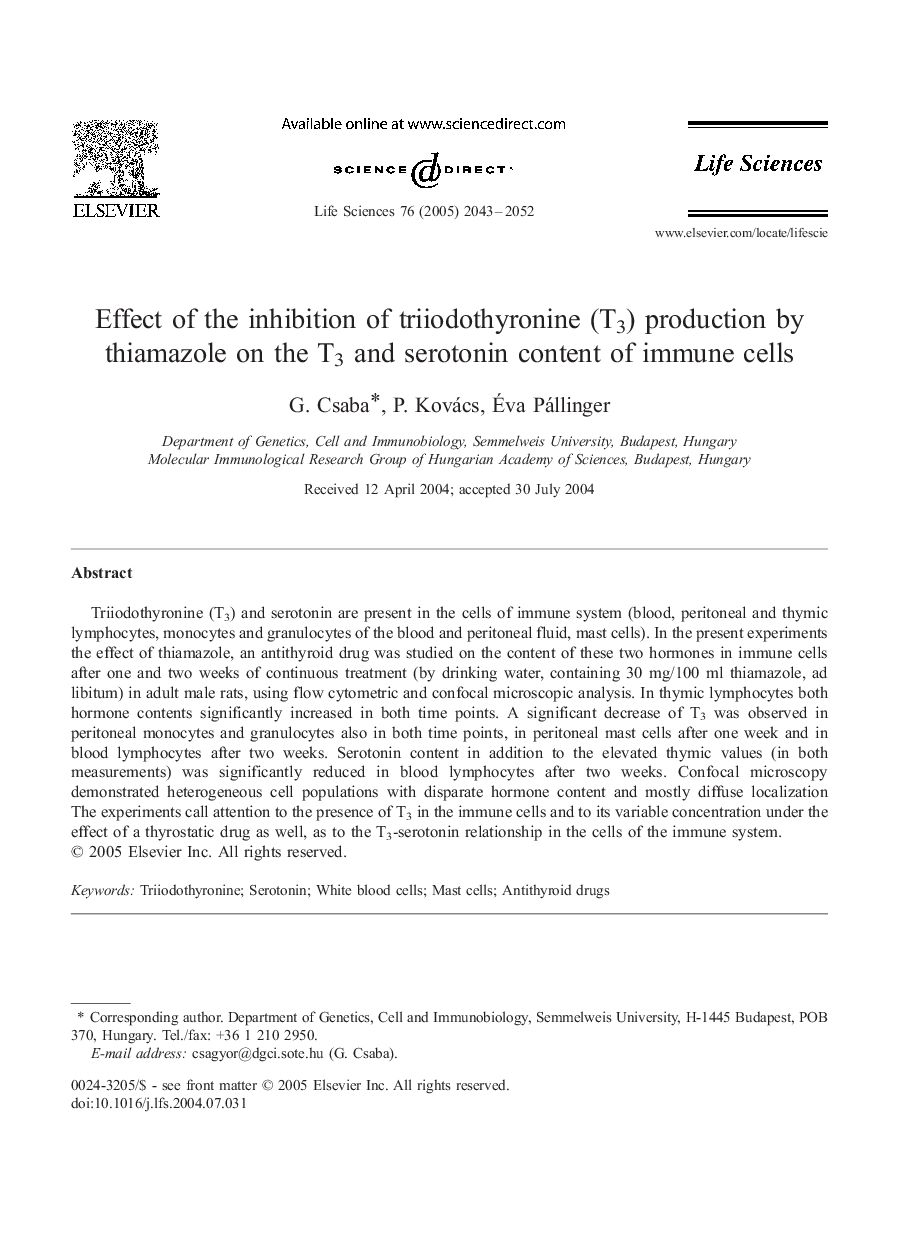| Article ID | Journal | Published Year | Pages | File Type |
|---|---|---|---|---|
| 2555049 | Life Sciences | 2005 | 10 Pages |
Triiodothyronine (T3) and serotonin are present in the cells of immune system (blood, peritoneal and thymic lymphocytes, monocytes and granulocytes of the blood and peritoneal fluid, mast cells). In the present experiments the effect of thiamazole, an antithyroid drug was studied on the content of these two hormones in immune cells after one and two weeks of continuous treatment (by drinking water, containing 30 mg/100 ml thiamazole, ad libitum) in adult male rats, using flow cytometric and confocal microscopic analysis. In thymic lymphocytes both hormone contents significantly increased in both time points. A significant decrease of T3 was observed in peritoneal monocytes and granulocytes also in both time points, in peritoneal mast cells after one week and in blood lymphocytes after two weeks. Serotonin content in addition to the elevated thymic values (in both measurements) was significantly reduced in blood lymphocytes after two weeks. Confocal microscopy demonstrated heterogeneous cell populations with disparate hormone content and mostly diffuse localization The experiments call attention to the presence of T3 in the immune cells and to its variable concentration under the effect of a thyrostatic drug as well, as to the T3-serotonin relationship in the cells of the immune system.
